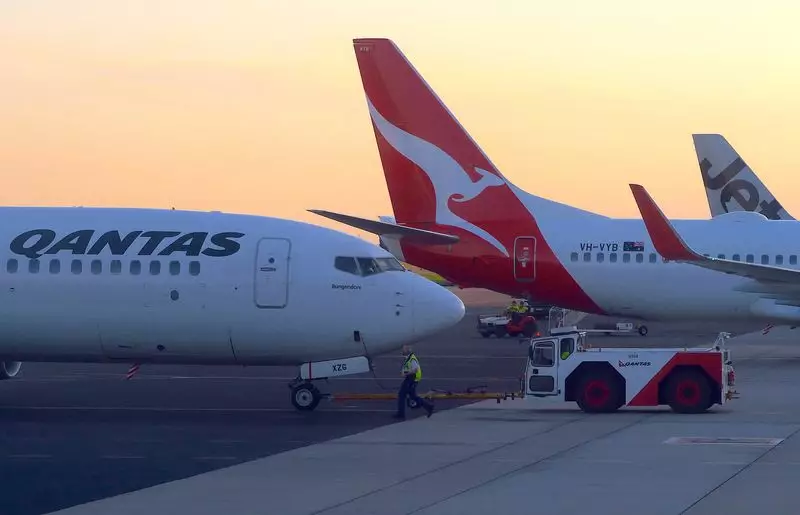In a significant legal development for Qantas Airways, the Federal Court has mandated that the airline pay A$170,000 (approximately $114,000) to three former baggage handlers who were unjustly terminated in 2020. This judgment is a critical moment for the airline, as it faces potential ramifications from an extensive lawsuit involving around 1,700 additional workers whose positions were similarly outsourced. Federal Court Judge Michael Lee articulated that Qantas must compensate the former employees A$30,000, A$40,000, and A$100,000 for the non-economic losses they incurred due to the unlawful dismissal.
Judge Lee stated that the airline’s actions were part of a strategy designed to avert industrial action during a tumultuous time for the industry, indicating a possible motivation of economic expediency overshadowing employee rights. The judge’s ruling illuminates the gravity of the issue at hand, asserting that these payouts should act as “test cases” during ongoing negotiations with unions regarding comprehensive damages for all former ground staff.
In its defense, Qantas claimed that the sackings were necessary for cost-cutting during the height of the COVID-19 pandemic—the period when many airlines around the world faced dire financial strain. However, Judge Lee suggested that the airline could have pursued lawful alternatives, hinting that had it adhered to proper practices, the airline would have legally outsourced its ground operations in 2021, thus saving around A$100 million annually.
This lack of foresight raises questions about Qantas’ corporate governance and operational strategies during a crisis. It suggests a reactive approach rather than a proactive and ethical consideration of employee welfare. The ruling not only highlights Qantas’ apparent failure to manage its workforce responsibly but also underscores the broader ethical obligations that corporations have in times of financial turmoil.
In reaction to the decision, Michael Kaine, national secretary of the Transport Workers Union (TWU) that brought the case, emphasized the pressing need for Qantas to demonstrate real change in its corporate culture. After years of disputes and resistance in acknowledging their responsibility towards former employees, Kaine’s words resonate as a call for accountability and reconciliation. The union’s involvement marks a pivotal shift towards advocacy for worker rights, especially for those dismissed without what is deemed justified cause.
Qantas’ new CEO, Vanessa Hudson, who took the reins in November 2023, expressed regret over the situation, suggesting a desire for a new chapter for the airline. However, whether this sentiment translates into actionable change remains to be seen. Hudson’s leadership and intentions will be scrutinized as Qantas is tasked with not only compensating the employees but also repairing its tarnished reputation in the airline industry.
As Qantas prepares for negotiations regarding total compensation for the sacked workers, scheduled for a court return on November 15, the stakes are high for the airline. This ruling serves as a litmus test for Qantas’s commitment to ethical practices and employee relations. The legal battle following the pandemic may very well define the airline’s future, both in terms of its public image and its internal culture. The airline must now prove that it has truly turned over a new leaf, and this next phase in its journey is critical for restoring trust with both its employees and its customers.

